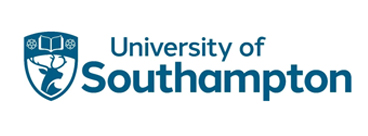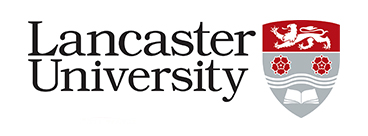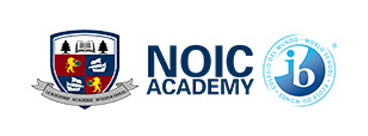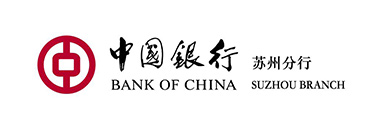21秋-香港浸会大学-商业管理硕士
背景介绍
申请难点
留学规划与提升

院校解读
留学方案
案例分析
Core Courses
ACCT 7060 Business Accounting (3 units)
This course stresses the analytical use of accounting information from the perspective of business management. Under current business environment, managers need financial information to aid in planning operations, controlling operations, assessing performance, and making financial decisions in order to compete effectively in world markets. This course will cover topics of financial accounting and management accounting. Financial accounting includes topics for preparation of financial statements, ratios analysis and cash flow analysis. Management accounting includes topics for decision making, such as cost determination and control, relevant costing, budgetary control, responsibility accounting, capital budgeting decisions, and performance evaluation.
BUS 7080 Business Research Methodology and Application (3 units)
This course aims to provide students with the necessary methodological and data analytical tools for business research. Both quantitative and qualitative methods will be introduced. Students will also design and conduct individual research exercises/projects and learn to interpret research findings for business decision making.
ECON 7015 Business Economics in the Digital Era (3 units)
The course introduces economic theory necessary for sound business decision making, and enable students to evaluate the business environment as well as the effects of the latest wave of innovations and technology breakthrough in digital economy for making favorable business decisions.
Upon finishing the course, students are expected to apply economic models for business analysis and decision making, and to project the potential changes and evolvement in business environment. In order to enable students to keep abreast of the latest market environment, application of the business economics knowledge that addresses specifically the issues in the digital era under big data, blockchain and innovation environment would be covered.
FIN 7940 Corporate Finance and Governance (3 units)
This course introduces the basic concepts and techniques in making investment and financing decisions. It enables students to evaluate some basic investment options, understand how corporations finance their investments, and appreciate different capital structure. It also covers the basic concept on corporate governance.
MGNT 7780 Manageing People and Organization (3 units)
While attributes for good leaders are numerous, strategic management and people management are two key capabilities required of successful leaders. Strategic management involves provision of overall directions to organizations, specifications of organizational objectives, development of policies and plans to achieve these objectives and allocation of resources to implement the plans. To this end, it is the people in the organizations who perform. Organizations are in fact complex organisms consisting of inter-relationships and processes. Because of this complexity, it is not easy to visualize why the people in organizations are performing in particular ways. Individuals’ performance at and commitment to organizations, both in separation and in aggregate, at the end affect the readiness and effectiveness of organizations to achieve their strategic objectives.
This Course is therefore aimed at outlining the journey along which business managers work from strategic analysis, strategy formulation to strategy implementation through people, both in groups or individuals, and also providing a framework to explain why and how the desirable individual outcomes (i.e. performance and commitment) are achieved through improving different organizational mechanisms, team mechanisms, individual mechanisms and individual characteristics, which in turn help the organizations achieve their strategic objectives. The students will have a better understanding of the organizations and teams they are working at and the behaviors of the people with whom they interact. They will know how the designs and operations of the organizations and the teams within as well as how the behaviors and interactions of individuals will all ultimately affect work performance and individual commitment, which are required if organizations are to achieve their strategic objectives. The trend of thought in designing this course follows that organizations develop their strategic positions and corresponding strategies and that organizational and team mechanisms and characteristics affect individuals’ deliverables which in return affect organizational capabilities to implement the desired strategies. The classes are highly interactive and intensive and students will work on both group and individual projects which require continuous self-reflection and contemplation of abstract concepts, both of which are essential to the development of higher-level management skills.
MKT 7080 Managing Marketing (3 units)
The objective of this course is enable students to develop a disciplined approach to the analysis of market situations and decision making. The orientation is managerial and real life applications will be emphasized. Taking a holistic view, emphasis is on the entire marketing program and the global environment in which it operates so that students can develop the skills required to make optimal marketing decisions.
Required Courses
BUSD 7021-2 MScBM Capstone Business Project (3 units)
This case is a laboratory for students to apply their learning to real-world strategic problems. Specifically, students are required to have a good understanding of the chosen organization, identify the key strategic issue(s) facing the organization, conduct a thorough internal and external (including international) analysis using appropriate theoretical models and make recommendations taking into consideration the cost implications, feasibilities and all stakeholders. In the real business world, there are times that professionals face “can’t fix” problems. Students are expected to anticipate these problems and prepare the “second best” plans with emergent strategies.It is an exercise in managing task-focused relationships among team members, client managers and the faculty supervisors. It gives students a chance to define issues, to gather relevant data from a variety of sources, to do insightful analysis as well as to develop creative and feasible solutions. It also provides opportunities for students to learn about an organization, an industry and/or a field of management that is of long-term interest to the members of the project team.
At least four seminars hosted by researchers and / or practitioners with good amount of experience will be organized and students are required to attend all as this forms an important part of learning. Students, working in groups of 3 -5, will be assessed according to the depth and width of their analysis, the appropriateness, feasibility, and cost-effectiveness of their recommendations and the implications on implementation and stakeholders.
BUS 7470 Business Field Study (3 units)
This field study enables students to visit a location of timely business value. The location is to be decided by the Programme Director with due consultation with PMC members and student representatives. The location may be any city/country in the world. Provided with highlights of the chosen location, its business environment, and background of the firms/organisations to be visited, participating students are required to produce both group and individual reports.
Elective Courses
ACCT 7080 Financial Statement Analysis (3 units)
The objective of the course is to develop an understanding of the use of financial information in decision-making contexts, taking into account the incentives of the producers and consumers of financial information. Users of financial information include management at various levels in a firm, corporate boards, individual and institutional equity investors, financial analysts, lenders (banks and bond investors), and regulators. The focus of the course is to sharpen student’s analytical abilities in financial statement analysis from a managerial and business strategy standpoint.
ACCT 7890 Advanced Management Accounting and Control Systems (3 units)
This course provides students with an understanding of how management accounting and control system could help organizations to implement their strategies. It examines the use of accounting and control systems for strategy process, including strategy formulation, implementation and evaluation. The course also aims to discuss how to use management accounting techniques for business decisions at different stages of organizational strategy. We will pay particular attention to the application of management accounting and control system design to service and non-for-profit organizations and multinational enterprises.
ACCT 7900 Intellectual Property and Data Protection Compliance (3 units)
In the digital era the need for businesses to innovate along with the internet of things meant that intellectual property and the protection of data regulatory obligations is core to managing business risks. This course aims to enable students to obtain a firm foundation in intellectual property laws including trademark law, copyright, patents, design rights and confidentiality, as well as data protection laws by tackling matters relating to privacy of individuals and rights of access to data.
ACCT 7940 Enterprise Risk Management (3 units)
In the 21st Century, rapid changes and compounding uncertainties are the new normal for businesses across the globe. Therefore effective risk management has become a necessary business tool to meet existing, new and unknown challenges. In this course, students will appreciate the role and importance of enterprise risk management, the processes and techniques that can support a company to ensure the effective assessment, monitoring and control of risk are in place. In addition, this module shall include an analysis of its links with good corporate governance practices, embedding business continuity capabilities and the building blocks of robust compliance management that are integral to delivering good risk management outcomes.
BUS 7060 Business Law and Corporate Governance (3 units)
This course aims to provide students with an understanding of the legal framework related to the Hong Kong legal system, contract law and corporate governance. Related laws and regulations such as case law, the Sale of Goods Ordinance, Control of Exemption Clauses Ordinance, Companies Ordinance, the Securities and Futures Ordinance, the Listing Rules, the Code of Best Practice, and the Takeover Code will be covered. Other topics include the HK legislative process, the doctrine of judicial precedent, contract law: formation, validity, performance, and remedies for breach of contract, corporate governance: mergers and acquisitions; shareholders’ residual powers; protection of minority shareholders; types of directors; directors’ appointment, rotation, disqualification and removal; board of directors’ composition, meetings and duties; monitoring the board of directors; interests of other stakeholders such as individual and institutional shareholders, creditors and employees.
BUS 7070 Business Operations (3 units)
This course introduces contemporary concepts and models of operations management, focus on the enhancement of competitive, collaborative advantages and core competence through business operations and supply chain management. It particularly gives attentions to global and regional operational environments, and delivers managerial knowledge of operational strategies, product and service design, capacity planning, business process selection, location and warehousing management, quality control and management, inventory and transportation management, operational scheduling, supply chain management, JIT and lean operations, project management, and operations performance management.
BUS 7400 Legal Aspects of China Trade and Investment (3 units)
Business between Hong Kong and China is very substantial. Therefore, it is essential for Hong Kong business people doing business in China to understand the legal aspects of trade and investment in China. This course will provide the students with an understanding of the legal framework of China and the commercial and civil laws in China.
BUS 7440 Entrepreneurship Development (3 units)
The scope of this course covers corporate and individual entrepreneurship, in particular, new venture creation. The entrepreneurial process, namely, from idea generation to the formation of a start-up company with successful venture capital funding and management team in place will be examined. A special attention will be paid to the critical elements of entrepreneurial activities including, but not limited to, business plan development, venture team building, business model development, business feasibility, resource allocation, and the valuation of ventures. Students will be exposed to the latest and standard international practices of the venture capital industry as well as to the regional variations of the Asean countries. Finally, selected cases and key lessons learned from China entrepreneurial development in the past 20 years will be critically examined in the course as part of the development and the shaping of the entrepreneurial orientation of students.
BUS 7450 Business Creativity (3 units)
The course Business Creativity emphasises the importance of creativity and innovation as key drivers of growth in times of the innovation economy. The students learn how to reliably develop meaningful ideas for a business challenge using a systematic innovation process method and related thinking tools.
At the end of the course, the students will personally experience the creative power of systematically applying thinking tools within a structured innovation process method in a real case simulation, thereby learning how to produce better insights and ideas for business success. Other topics discussed in the course are the interconnected relationship between the core concepts of creativity and innovation, modern spectrum of innovation types, and individual factors of creativity (mindset and action routines of creative top achievers).
ECON 7620 International Macroeconomics and Policy Issues (3 units)
The objective of this course is twofold: First objective is to explore the foundations of trade policies, particularly the major policies to promote free trade among trading partners. It also discusses the major issues related to trade imbalances, including the effects of trade policies, trade balances, and world trade system. To enhance deeper understanding of various trade policies, a comparison between these policies would be provided. Another objective is to focus on topics in international finance. Major topics covered include national income accounts, balance of payments, foreign exchange market, interest parity and purchasing power parity, and topics in international monetary economics.
ECON 7630 International Trade and Finance in China (3 units)
This course aims at fostering an understanding of two major aspects of China’s economic development since 1978: (1) the basic features and impacts of expanding foreign trade under the open policy; and (2) the functions and the administration of money and finance in an increasingly liberalised and decentralised environment. After a brief historical review of major stages, achievements, and remaining problems in both aspects, reform and policy options will be discussed, and the opportunities as well as challenges from a business perspective will be examined.
ECON 7860 Big Data Analytics for Business (3 units)
This course aims to introduce a set of fundamental principles of data science that underlie techniques for extracting useful knowledge from data. It also introduces several major data mining techniques for solving business problems around these general principles.
FIN 7760 Derivative Securities and Risk Management (3 units)
This course enables students to understand the fundamental concepts in derivatives and risk management and their applications. Derivatives have been used extensively in hedging, arbitrage, speculation, and the design of financial products. Executives with knowledge in derivatives can better assess the risk of a business entity. Precautions of using derivatives will also be emphasized. Besides application of derivatives in risk management, other techniques in risk management are introduced. In the global environment of business, risk management is an indispensable tool for business managers. Students will be able to apply the concepts in this course to real-world situations after the completion of this course.
FIN 7770 Investment and Portfolio Analysis (3 units)
This course analyses different principles in the valuation of financial assets including common-, preferred stocks and bonds. The development of portfolio concepts and capital market theories are introduced. The issue of market efficiency is investigated while asset pricing models are discussed. Techniques on performance evaluation are introduced and performance of mutual funds is also examined. After completing this course, students should be able to perform sound investment and portfolio analysis.
FIN 7920 Financial Technology (FinTech) (3 units)
The world of global finance, banking and financial services is changing rapidly with the emergence of start-up financial technologies, commonly referred to as FinTech, that are not only empowering or disrupting the status quo, but also are shaping the future of the financial services industry.FinTech is also the label for increasingly technological approaches to the main financial intermediation functions: payments, capital raising, remittances, managing uncertainty in today’s FinTech businesses, consumers bank via mobile apps integrated into social media, institutions trade electronically, and advisers make decisions about investment portfolios.
This course will provide students with the latest empowering and practical knowledge on FinTech enabling them to understand some of the FinTech changes taking place currently in the financial services industry and, most importantly, the trends that will impact the industry in the future.
FIN 7930 International Investmenet (3 units)
The objective of the course is to provide students with knowledge to understand the international financial environment as it relates to international investment and its impact to the Multinational Corporation. The course extends the corporate finance theory from local to international dimension. All traditional areas of corporate finance are approached from the perspective of Multinational Corporation.
HRM 7600 Global Human Resources Management (3 units)
Global Human Resources Management (GHRM) has been identified as a crucial factor in a firm’s international success. GHRM is more complex and varied than domestic HRM and incorporates a broader scope, and increased risk exposure as well as a change of emphasis. This course will examine environmental elements and the characteristics of GHRM. It will deal with the practical issues and consequences of the internationalization of HRM.
HRM 7640 Human Resources Analytics (3 units)
Human Resource Analytics is a process to discover patterns in data and turn data into insights and actionable recommendations by making use of statistical techniques, computer programming skills and human resource (HR) domain knowledge. HR is changing to be more data-driven. HR managers and practitioners are required to make evidence-based decisions by identifying and quantifying key people drivers to explain HR issues, predict trends and inform decision-making. Human resource analytics is an essential skill for making better strategic HR decisions.
This course aims to develop students’ knowledge, skills, and ability to diagnose, analyze, evaluate, predict, and make decisions using various HR and organization data and metrics. Students will learn various methods and techniques to collect data, hypothesize models and conduct analysis using statistical software to evaluate HR issues, make predictions and give evidence-based recommendations. Future development on human resource analytics will also be discussed.
ISEM 7050 Current Issues in Electronic Commerce (3 units)
MGNT 7250 Leadership and Organizational Development (3 units)
Due to constant changes in the market, a corporation often needs to restructure itself in order to remain its own compatibility and success. At the same time, the corporate leader has a vital role in developing the organization to its next level of success. Leadership is a process of influence in which one enlists the assistance and support of others in achieving a planned goal. Thus, for a company to successfully implement any organizational change initiative, it is a must that effective leadership is developed and in place in order to get the job done. This course helps to increase the knowledge of the students on how leadership can be developed and its role in organizational development. The first part of this course includes various leadership theories approaches, models and skill sets. For the organizational development part, students will gain understanding on important determinants, key components, and success factors of an effective organization developmental process.
MGNT 7790 Sustainable Growth through Mergers & Acquisition (3 units)
The course focuses mainly on managing growth and accelerate the transition in “M.A.I.R”.– Mergers and Acquisition (M&A), Integration, and Restructuring. This course emphasizes the importance of managing coevolution– successive changes for sustainable growth - as key drivers of growth in times of the fast changing, complex, and innovative global economy. The students learn how to lead and manage grow mindset as a key corporate culture and strategy to drive M&A, and reliably identify M&A initiative, and develop into valuable and meaningful business opportunities. Hence conduct analysis to qualify the M&A business project using a strategic business approach with systematic structural methods pre-M&A and processes to capitalize the Mergers and Acquisition opportunity, then to embark on post-M&A (MAIR) transition in integration and restructure to achieve the M&A-driven growth objectives .
MGNT 7800 Design Thinking for Business Innovation (3 units)
The course Design Thinking for Business Innovation emphasizes the importance of creativity and innovation as key drivers of growth in times of the innovation economy. The students learn how to use design thinking process to lead and manage innovation culture. Also learn and reliably develop and apply meaningful ideas for a business challenge using a systematic innovative design thinking model, its process method, and related thinking tools. At the end of the course, the students will personally experience the creative power of systematically applying the structured innovative design thinking process method in a real case, thereby learning how to produce better insights and ideas for business success. Other topics discussed in the course are the interconnected relationship between the core concepts of creativity and innovation culture, and factors relating to innovation and creativity for individual and team.
MGNT 7810 Business Negotiation (3 units)
This course focuses on developing your negotiating skills and making you a more confident negotiator. By the conclusion of this course, you will have improved your ability to diagnose negotiation situations, strategize and plan upcoming negotiations, and engage in more fruitful negotiations, even in situations where you are dealing with difficult negotiation partners. Because negotiating agreements is as much art as science, learning in this course will take place mainly by doing experiential exercises, and research on negotiations will be used to supplement this learning. You will be placed into numerous realistic negotiation settings, and you will need to prepare for, participate in, and analyze your negotiations.
MGNT 7820 Psychology of Organisations (3 units)
This is an introductory course of psychological theories and research that are relevant to functioning of organizations and lives of organizational members. It covers a wide range of topics in the area of social and cognitive psychology, which provide new ways of understanding individuals’ organizational experiences and how organizational experiences influence individuals’ other spheres of lives, such as their family life, their social interactions outside organizations, and their relationships with other stakeholders of organizations. Students will be able to learn a set of psychology-based skills and knowledge that will help me make sense of and resolve problems at work and in the daily lives.
MKT 7100 Management of Integrated Marketing Communications (3 units)
The aim of this course is to provide students with the knowledge and skills needed to analyse and solve marketing communication problems at a strategic level, taking into account its impact on the firm as well as society in general.
MKT 7130 Services Marketing Management (3 units)
Although firms have long recognised the value of services, most business programmes still focus on the marketing and management of physical products. This course addresses the importance of the services industry, and the distinctive characteristics of services. Students develop a firm understanding of key challenges and issues associated with marketing in a services environment, gain a broad understanding of the interaction between marketing and management in a service organisation, and become familiar with issues in developing and assessing service quality.

















